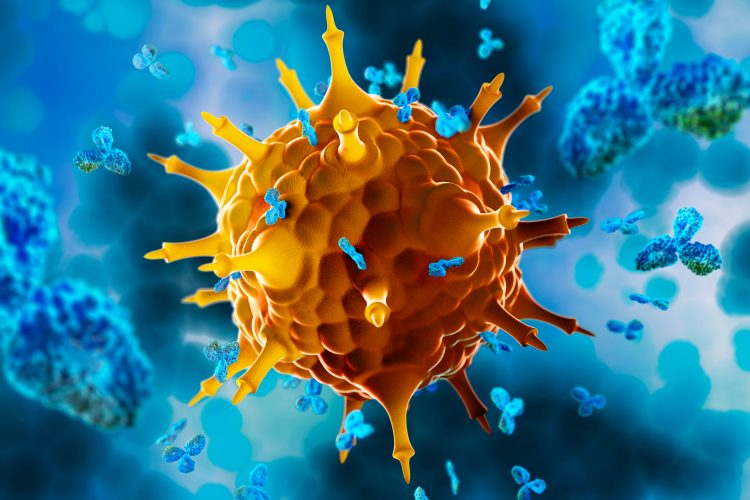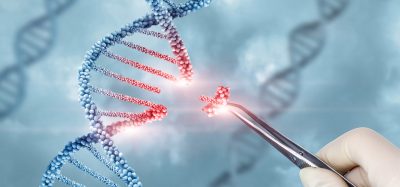2B7 antibody could be the breakthrough needed for dengue fever therapies
Posted: 8 January 2021 | Hannah Balfour (Drug Target Review) | No comments yet
Scientists show that an antibody targeting a protein acting as a viral toxin, can prevent the dengue virus from infecting human cells.


Researchers have discovered an antibody that can prevent dengue virus, and potentially other flaviviruses, from causing disease.
Because 2B7 antibody, which has so far been tested in mice, neutralises a protein required by multiple flaviviruses to infect cells and replicate, the scientists suggest their findings could enable the development of effective treatments and design a vaccine for dengue and other, similar diseases. Zika, yellow fever and West Nile fever are also flaviviruses.
In their study, the team from the University of California (UC) Berkeley and the University of Michigan (U-M), both US, revealed how the 2B7 antibody neutralises a protein called NS1 (non-structural protein 1) which is produced by the dengue virus and circulates in the patient’s blood.
NS1 has been shown to exacerbate disease by interacting directly with the endothelial cells that form protective barriers around organs. It breaks the connections between these epithelial cells, increasing the permeability of the barrier and contributing to increased vascular leak, which is the hallmark of severe dengue disease. According to some experts, this increase in endothelial permeability may also enable the virus to more easily cross barriers to infect and damage target organs. Additionally, NS1 can cause leaks in the endothelial barrier, even in the absence of infectious viral particles.
According to the authors of the new study, the more NS1 found circulating in the blood of a dengue fever patient, the more severe the infection is likely to be.
“We think of bacterial toxins, but this idea of a viral toxin is a new concept,” said Eva Harris, a professor of infectious diseases and vaccinology at UC Berkeley’s School of Public Health and one of the study’s senior authors. “This is really an important protein in terms of creating new paradigms regarding how we think about viral proteins and their functions in disease.”
In the study, the researchers identified specific regions of the protein that are responsible for damaging the endothelial cells: a so-called wing region that allows the protein to connect to the host cells and another region that triggers destructive events within the endothelial cells.
By analysing how the 2B7 antibody attaches to the protein, they found that it can neutralise both regions. According to the study, the 2B7 antibody binds to NS1 in such a way that the wing regions cannot reach the endothelial cells, preventing the protein from interacting with and damaging the endothelial cells.
A breakthrough for dengue fever treatments?
The researchers explained that one of the reasons that no effective therapeutic has been found for dengue is that it can be caused by one of four different virus strains and having antibodies against one strain of the virus can increase the severity of a subsequent infection from another strain. This is a phenomenon called antibody-dependent enhancement.
According to the team, because the 2B7 antibody binds to the NS1 protein and not the virus directly, it does not lead to antibody-dependent enhancement of the infection.
“These findings tell us that we can really have an effect on the virus’s pathogenesis by blocking these sites on just the circulating proteins,” said Janet Smith, a professor at the U-M Life Sciences Institute and U-M Medical School. “It offers a strategy not only for a therapy to treat an infection, but also for a vaccine to prevent infection.”
Additionally, they showed that the 2B7 antibody may be able to treat or prevent multiple flaviviruses because the mechanism by which NS1 causes dengue pathogenesis is conserved across other members of the flavivirus family.
“I think the fact that this antibody is cross-reactive with other flavivirus NS1 proteins is one of the most exciting elements of this work,” said Scott Biering, a postdoctoral researcher in Harris’s lab and a lead author of the study. “This research is the proof of concept that you can target this one protein for multiple flaviviruses to protect against pathogenesis. It opens a lot of avenues not only for better understanding the mechanics of this virus, but also for developing effective therapeutics.”
The study was published in Science.
Related topics
Antibodies, Drug Leads, Drug Targets, In Vivo, Protein, Therapeutics
Related conditions
Dengue virus, West Nile virus, Yellow fever, Zika virus
Related organisations
University of California (UC) Berkeley, University of Michigan (U-M)
Related people
Eva Harris, Janet Smith, Scott Biering








